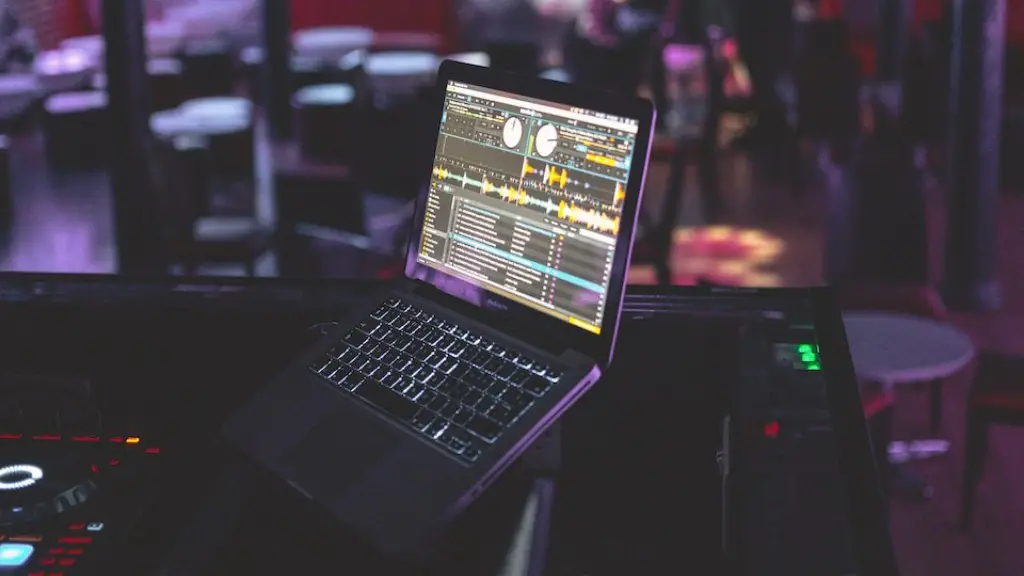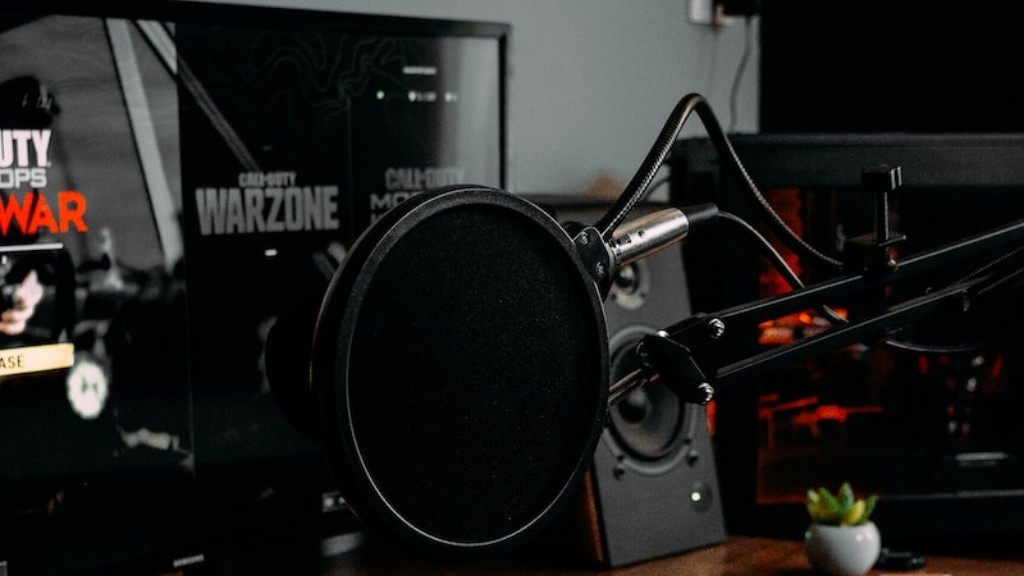A gaming laptop is a personal computer designed for playing computationally demanding video games. They are similar to conventional laptops in most respects, such as processing power and weight, but are optimized for gaming performance. Gaming laptops are often more expensive than traditional laptops, and can generate more heat.
So, how hot should a gaming laptop get? Generally speaking, the higher the performance of the laptop, the hotter it will run. That said, there are a few things you can do to help keep your gaming laptop cool. Make sure it has good airflow, and don’t block any of the vents. You can also try using a cooling pad to help disperse the heat. If your laptop is running hot, it’s a good idea to check the fans to make sure they’re clean and not blocked.
With a little care, you can keep your gaming laptop running cool and avoid any overheating issues.
There’s no real answer to this question since it can vary depending on the make and model of the laptop, as well as what games you’re playing. Some games require more processing power than others, which can cause your laptop to run hotter. Generally speaking, though, you shouldn’t worry about your laptop getting too hot as long as it’s not hot enough to be uncomfortable to use. If your laptop starts getting too hot, you can always turn it off and let it cool down for a bit before turning it back on.
Is it normal for laptop to get hot while gaming?
Laptop overheating is normal and to be expected. The internal electronic components generate heat while the laptop is running, especially during power-intensive operations such as charging, updating, gaming, etc. If your laptop is overheating, it’s important to take measures to prevent damage to the internal components. Some things you can do to prevent overheating are:
-Use a laptop cooling pad or stand to help dissipate heat.
-Make sure the laptop is well-ventilated and not obstructed by anything.
-Avoid using the laptop on soft surfaces like beds or couches, which can block airflow.
-Don’t use the laptop for extended periods of time without taking breaks.
-Clean the laptop regularly to prevent dust buildup, which can impede airflow.
Most gaming laptops are able to keep their CPU temperatures at 80 degrees Celsius or cooler. However, some laptops like the Asus Zephyrus M16 or Lenovo Legion 5 Pro have CPU temperatures that can reach above 100 degrees Celsius. This can be dangerous, especially if the laptop is used for prolonged periods of time.
Is 90 too hot for gaming laptop
It is generally considered safe for a gaming laptop to operate at temperatures up to around 90°C. However, it is important to note that operating a laptop at high temperatures for extended periods of time can increase the risk of component failure and shorten the overall lifespan of the device.
The optimal temperature for an idle GPU is between 35 and 55 degrees Celsius. However, during gaming and heavy usage, the average GPU temperature is generally around 60 to 80 degrees Celsius. Therefore, it is important to ensure that your GPU is properly cooled during these activities to prevent overheating and damage.
How do I know if my laptop is too hot for gaming?
While intel specifies temperatures of around 100 degrees celsius as a maximum, a good rule of thumb is to keep your computer at or below 80 degrees celsius. This will help to prolong the life of your computer and prevent any potential damage from overheating.
Laptops work best within a safe temperature range, typically between 50 to 95 degrees Fahrenheit (10 – 35 degrees Celsius). This range refers to the optimal usage temperature of the outside environment and the temperature the laptop should be warmed to before using. If the laptop is too cold, it can damage the battery. If the laptop is too hot, it can cause the processor to overheat and potentially damage the internal components.
Will 100C damage GPU?
Modern NVIDIA GPUs will be safe as long as they remain below 85 degrees Celsius under full load. However, some GPUs may be able to exceed this temperature before hitting their maximum temperature. On the other hand, modern AMD GPUs should stay below 100 degrees Celsius to be safe, with the most recent AMD GPUs having a maximum temperature of 110 degrees Celsius.
A good gaming laptop will last you around five years performance-wise. Pick up a laptop that matches or exceeds the performance of a current console. The GPU in a gaming laptop will affect its lifespan the most. Most gaming laptop hardware isn’t upgradable, so spend your money where it matters most.
Is 90 degrees hot for a PC
Anything under 60 degrees C (140 degrees F) is perfect. Just above this temperature is okay, but as you creep above 70 degrees C (158 degrees F), you should look at how to cool your PC down. Above 81 degrees C (178 degrees F) is too hot and could cause damage to your computer if you run it for a sustained period.
Thermal throttling is a safety measure implemented in most computer hardware which reduces clock speeds to decrease temperature to safe levels. Usually, 75-80°C is perfectly normal for a medium to high end gaming laptop under load. Any higher than this, and the performance will begin to decrease.
Do laptop cooling pads work?
Cooling pads are an easy and effective way to keep your computer running cooler. By dissipating heat away from your laptop, they can help increase its longevity and performance. Additionally, many users find that their laptops run quieter when using a cooling pad.
One of the most overlooked and underrated tips for improving your posture and preventing back pain is to lift your laptop off the table. By elevating your device, you can maintain a more neutral position and avoid strain on your neck, back, and shoulders. Additionally, this simple change can help improve your posture and prevent back pain. Try it out for yourself and see how quickly you notice the difference!
How hot does RTX 3080 get under load
While 80c is warm, it is within the maximum temperature specification for the Nvidia RTX 3080. So there is no need to worry about the card overheating.
The ideal temperature for your computer is 23 degrees Celsius or 75 degrees Fahrenheit. However, it can be harmful if the temperature exceeds 27 degrees Celsius or 73 degrees Fahrenheit. The CPU temperature should not exceed 75 degrees Celsius or 167 degrees Fahrenheit.
How hot is too hot for GPU?
A temperature between 90 to 100 degrees celsius is considered to be too hot for a GPU. If it goes more than that, there might be permanent damages to your processor. To help you in this case, we have discussed everything you need to learn about GPU heat and how to control the heat.
If your laptop is overheating, there are a few things you can do to try to fix the problem. Check and clean the fans to make sure they’re not blocked. Whenever you feel your laptop getting hot, place your hand just next to the fan vents to see if the air is actually moving. Elevate your laptop to help promote airflow. Use a lap desk or something similar to keep the bottom of the laptop from getting too hot. Controlling fan speed can also help, although it may not be possible on all laptops. Avoid using Intense processes or running multiple programs at the same time, as this can put a strain on the system and cause the laptop to overheat. Finally, keep your laptop out of the heat as much as possible. If you’re using it on your lap, make sure there’s nothing blocking the vents. These tips should help you keep your laptop cool and prevent it from overheating.
Why does my gaming laptop sound like a jet engine
There are a couple of potential reasons why your computer’s fan and hard drive might be making a lot of noise. One possibility is that they are simply getting old and starting to show signs of wear and tear. Another possibility is that there is a buildup of dust in the components, which can cause them to work harder and make more noise.
If you are regularly reaching sustained CPU temps above 80°C, you may be doing long-term damage to your CPU. This is because sustained temperatures above 80°C can cause the CPU’s silicon to degrade over time. If your CPU regularly reaches temps above 90°C, it is likely reducing the lifespan of your processor.
Final Words
There is no one definitive answer to this question, as different laptops will have different optimal temperature ranges. However, some general guidelines suggest that a gaming laptop should not exceed temperatures of 80 degrees Celsius.
There is no universal answer to this question as it depends on the individual laptop and how it is being used. However, as a general rule of thumb, gaming laptops should not get too hot to the touch as this can indicate that there is an issue with the cooling system. If you notice that your laptop is running hot, it is important to take breaks and give it time to cool down to avoid damaging the internals.

